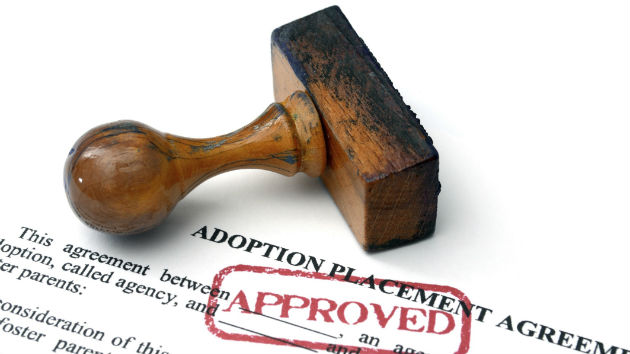How Americans Adopted Crimea’s Last Orphan
Published at
 iStock/Thinkstock(MOSCOW) — As the overnight train pulled up to Crimea’s new border with Ukraine, Kristine Proctor held her breath. Armed soldiers outside the window peered inside.
iStock/Thinkstock(MOSCOW) — As the overnight train pulled up to Crimea’s new border with Ukraine, Kristine Proctor held her breath. Armed soldiers outside the window peered inside.
“Are there any foreigners?” they asked the conductor. He pointed at Proctor and her companions: the girl she was adopting from a Crimean orphanage and Inna, the Ukrainian woman who was helping them escape.
“Two Americans,” the conductor replied. The soldiers didn’t ask any more questions and moved on. Eventually the train continued on its way to Kiev, Ukraine’s capital.
Proctor exhaled. Her daughter had made it out as the last Crimean orphan adopted by Americans.
“It was terrifying,” she recalled in a phone interview on Friday, just hours before flying home to Michigan. “We’ve had a lot of miracles.”
Just hours after the Proctors crossed the border, Crimea was officially annexed by Russia, which had banned adoptions to the United States. Dozens of Crimean orphans who were on the verge of being adopted by Americans were now stuck.
The Proctors’ dramatic escape was an example of how the region’s transition from part of Ukraine to part of Russia in the span of just a few weeks threw ordinary lives into chaos.
Kristine and her husband James were just days away from bringing their adopted daughter, who decided to rename herself Melissa, home from Crimea when Russian troops poured onto the street. With a referendum that would likely lead to Crimea’s unification with Russia looming, it was suddenly a race against time.
Their case had been delayed as a local judge and bureaucrats in Kiev bickered over a technicality and the wording of documents needed to approve Melissa’s adoption. While they waited, Crimea marched towards independence and eventual unification with Russia.
James returned home to work and Kristine stayed behind to see the adoption through. The situation in Crimea became more tense as the referendum neared. Pro-Russian crowds marched through the streets while dragging the Ukrainian flag and denouncing Kiev’s western backers. Proctor kept a low profile.
The Proctors met Melissa, whose birth name is Yana, in December just months before her 16th birthday– the age when she would grow out of Ukraine’s orphanage system and be left to fend largely on her own.
“We had an instant connection,” Kristine recalled.
Even though Ukraine was plunged into uncertainty by street protests in the capital, Crimea had largely been calm. The Proctors hoped everything would be completed quickly.
But by the time the court finally issued its decree approving Melissa’s adoption, it was a day after the referendum. Crimea’s unification with Russia was still days away, but local bureaucrats were already making the change. They stopped issuing the Ukrainian documents Melissa needed to leave the orphanage and complete her adoption.
Inna called passport agencies, frantically searching for one that would issue a Ukrainian one to Melissa. None would. Eventually she found a bureaucrat willing to issue her a tax identification number. It was enough to get train to tickets to Kiev.
They boarded the overnight train just hours before Russia completed its annexation of the region.
“When the train came into the station (in Kiev), Inna and I looked at each other and started crying,” Proctor said. “We were in survival mode and it all hits you.”
But in Kiev their troubles continued. Officials there would not issue a passport, demanding instead that they return to Crimea.
“I told them, ‘Do you know what’s going on there? That is not an option,'” Proctor recalled.
Melissa’s case was stuck in limbo for days as she and her new family searched for a solution. Finally, Ukraine’s policies caught up to the geopolitical realities and they changed the rules, allowing Crimeans to receive passports in other regions.
Melissa received her passport and an American visa last week. They left Ukraine for the United States on Saturday afternoon. Melissa had never been more than a couple hours from her orphanage in Crimea.
“She’s very excited,” Proctor said. “She’s a very confident young lady. Very smart. I think she’ll really flourish.”
Advocates say many more Crimeans orphans who were on the verge of being adopted by Americans are left behind. Even though the children there are still Ukrainian citizens for now, their cases have been halted and advocates say it is highly unlikely Russian authorities will allow their American adoptions to go through.
Copyright 2014 ABC News Radio


